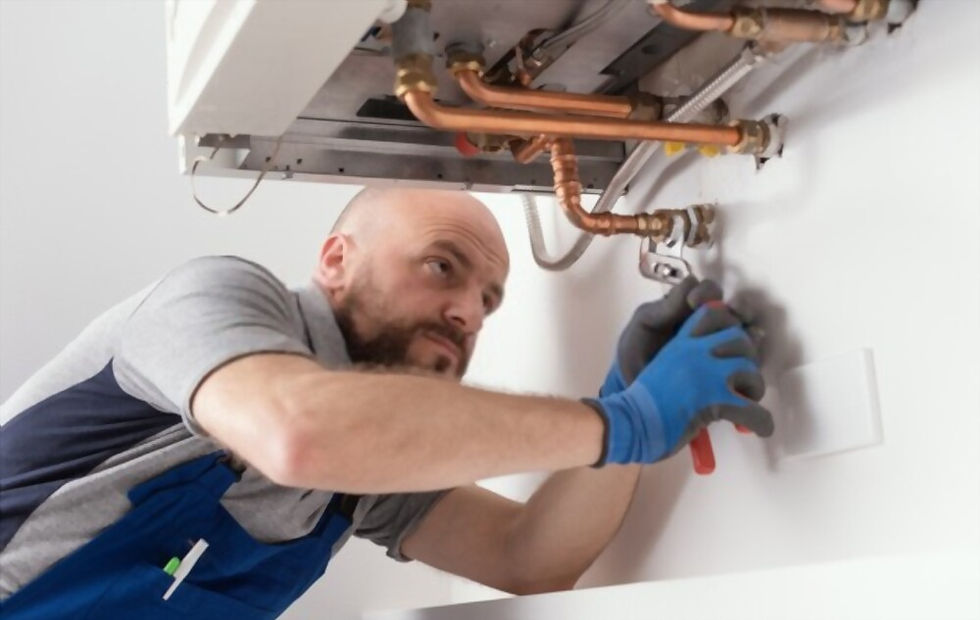The Pervasive Power of Hot Water: Unraveling Facts and Myths on Physical Wellness
- Zac Ferry
- Jul 12, 2025
- 4 min read
Updated: Jul 21, 2025
Imagine usually starting your day with a hot shower, or kicking back after an exhausting day with a cup of hot tea. Sensations that form part of our everyday rituals, right? But have you ever stopped to ponder upon the intriguing question: How does hot water impact our physical health? Is it essentially beneficial or notoriously harmful, or somewhere in between? We'll dive into these arguably surprising insights, unleashing empirically backed conclusions that break common myths and provide versatile perspectives on contrasting beliefs.
As interlocking pieces of our healthy living puzzle, we will provide the undisputed facts behind these solemn queries. We'll sift through the perceived advantages and potential drawbacks related to the intake and use of hot water, and ultimately shed light on its profound impacts on our physical health. Brace yourself for an exhilarating journey of unearthing the often overlooked aspects of something so ubiquitous, yet so vital in our everyday lives.
In today's exploration, we'll trek through the landscape of scientific studies, age-old traditions, and contemporary habits. Let’s embark, shall we?

The Why & How: Underlying the Science of Hot Water
Delving into the sea of scientific explanation allows us to understand why hot water has always remained a benign part of various cultures throughout history. Water, when heated, becomes a natural solvent, an attribute which we can tap into for promoting elements that aid our health. This biological advantage, coupled with the thermal effect it has, leads to a range of benefits.
The first line of impact that hot water has resonates with our comfort. The intake of hot water, or a hot shower for that matter, usually coincides with a feeling of relaxation - an automatic response to the warmth spreading through our body. But going beyond the surface, heat dilates the blood vessels, promoting healthy blood circulation and indirectly contributing to a more efficient oxygen flow.
Heat also breaks down the food in our stomach, boosting the digestion process. Additionally, inhaling steam aids in clearing nasal and throat congestion. While these are some of the more commonly known benefits, let's now flip through the lesser-known pages of hot water's impact on our health.
The Unconventional Benefits: Hot Water Beyond the Norm
While hot water is synonymous with relaxation and comfort, it also possesses some unique benefits that frequently fly under our wellness radar. For instance, in the realm of dermatology, hot water is instrumental in opening up our skin pores.
Opening up the pores leads to a deeper cleansing of the skin, eliminating toxins and bacteria. Also, the practice of rinsing the hair with hot water before a condition can be beneficial. It opens the hair cuticles, allowing the conditioner to penetrate deeper and more effectively.
Another health advantage that hot water presents relates to the domain of mental health. Studies suggest that physical warmth can foster feelings of emotional warmth. Some even relate the intake of hot water to feelings of solitude and serenity – a minuscule oasis in our chaotic daily lives.
Dispelling the Myths: The Consequences of Misinformed Beliefs
With every blessing comes a curse. The downside of hot water largely relates to misconceptions and incorrect practices. Some believe that consuming hot water can directly aid in weight loss. However, hot water in itself does not burn fats; It is the added elements such as lemon or green tea that pave the way for weight reduction.
Similarly, frequent and prolonged exposure to hot water can lead to dry and itchy skin. It strips the skin of its natural oils, causing more harm than good. Advocation of extremely hot baths as a remedy for muscle pain overlooks the potential burn factor, leading to severe skin damage in certain instances.
Miracle or Menace: The Pros and Cons Snapshot
By now, we've established that hot water is neither a miracle potion nor a single-handed menace. It can both benefit and harm our physical health. The pros such as improved circulation, aid in digestion and therapeutic relaxation contrast against the cons like potential burns, itchiness and dryness.

Tuning the Temperature: Finding your Ideal Hot Water Balance
The crux of effectively utilizing hot water lies in achieving an optimal balance. This balance varies significantly between individuals, considering their personal preference, body’s tolerance, and the specific environment.
For some, a hot shower envelops a cocoon of comfort, while for others, a warm cup of lemon-infused water is the ideal way of kickstarting their day. It's all about recognizing your comfort levels and syncing them with the scientifically backed benefits and negatives that we have unveiled here.
Conclusion: Unveiling the Power of Hot Water on Physical Health
Permeating various realms of our life, hot water indeed influences our physical health in more ways than one. While the ubiquitous benefits of improved digestion, comfort and relaxation are irrefutable, we've certainly unveiled some intriguing factors as well. Be it the unconventional benefits touching the spheres of skincare and emotional wellness, or the myths which have instilled some unfounded beliefs.
However, the key takeaway lies in understanding that hot water is neither an absolute saviour nor a potential daemon. It is a tool that can significantly contribute to our physical wellbeing if used wisely and judiciously – tailored to our personal needs and understanding. So, the next time you draw a hot bath or brew a pot of tea, remember – you hold the power to steer its effects on your health!
.png)













Comments